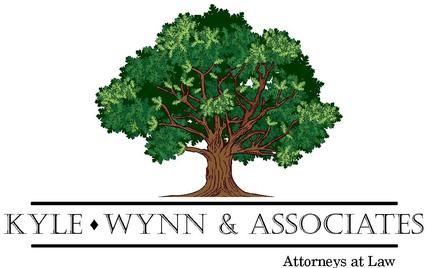May is National Elder Law Month

Like medicine, the legal profession has many specialized fields. You’ve likely heard of some of them: criminal law, corporate law, family law, and tax law are pretty well-known examples. Each deals with the particular area of the law for which it is named. Elder law is the same. It refers to the numerous legal issues that primarily affect older adults. Here are some of the more prominent topics grouped under “elder law.”
Guardianship and Conservatorship
When someone becomes incapable of caring for themselves, what to do is a topic fraught with controversy. Courts are often called on to appoint a guardian for incapacitated or disabled people when no planning has been done. This is a legal proceeding where a court decides whether to appoint a guardian to make decisions for and manage the incapacitated person's affairs, properly termed the "ward." If the court determines a guardian is needed, they must decide who should be appointed. The guardian is generally responsible for caring for the ward and their affairs. This includes providing necessities, making medical and long-term care decisions, and managing the ward's financial affairs. A conservatorship is very similar to a guardianship, but under Mississippi law, this term now refers only to managing the ward's financial affairs. Once put in place, this arrangement will probably last until the ward's death. Accountings must be submitted to the court in nearly all cases on at least a yearly basis, causing onerous bookkeeping requirements for the conservator. You can avoid conservatorship and guardianship in almost all cases with proper planning.
Medical Directives and Powers of Attorney
Many people choose to make preparations in advance in case they become unable to care for themselves. An Advance Health-Care Directive, which everyone over the age of eighteen should have, allows you to set out your wishes for medical treatment and care should you become unable to speak for yourself. Unfortunately, failure to plan can again lead to court involvement, and the Terri Schiavo case from Florida is a famous example. Mrs. Schiavo suffered a medical event leaving her in a persistent vegetative state. Unfortunately, her end-of-life wishes were not in writing, leading to years of court involvement in this family's highly emotionally-charged decision-making process. Although Mrs. Schiavo was not at all elderly (she was only 26 when she was stricken), elder law attorneys are frequently involved in this area of the law because incapacitation more often strikes the elderly than younger people.
Signing a Durable Power of Attorney allows someone else to manage your financial affairs and transact business in your place and stead in the event of your incapacity. With a legally sufficient power of attorney, your agent can, in most instances, do everything up to and including selling real property that you own, even including your home. Problems arise, though, when people download some form from the internet that may not be specific to their state of residence, or the form doesn't meet the requirements for a power of attorney to be valid. In addition, not all banks and financial institutions will honor powers of attorney, so if this document is all that you have to rely on, your agent may not be able to access any or all of your funds. This inability to deal with these funds can lead to an expensive, burdensome conservatorship.
Estate Planning
One of the oldest areas of the law is estate planning and administration. Estate planning is an area of law in its own right but is a familiar topic among elder law attorneys. This practice specialty involves the satisfaction of a deceased person's debts and property transfer to their intended beneficiaries after death. Unless steps are taken in advance to avoid it, this often occurs through the probate process – an infamously complicated, expensive, and drawn-out legal affair. Consequently, attorneys are frequently involved in estate planning matters from beginning to end.
Estate planning can take many forms. Some people will do nothing. They get no say as to who will be in charge of their estate or who will inherit from them. Instead, state law and the judge assigned to their probate case will make those decisions. This is called an intestate estate. Some people who choose to do planning will rely on a Last Will and Testament, a document that states how the deceased person (called the testator) wants their property distributed after death. The will also specifies who the testator intends to manage and distribute the testator's estate. This person is called the executor. Unfortunately, having those wishes in your will is no guarantee that your wishes are followed. In your probate case, it's still up to the judge to appoint the executor and ultimately distribute the assets. If someone wants to contest your will, anything could happen. Every state has detailed laws governing the drafting and execution of wills and the administration of a decedent's estate. That's why it's so important to have an experienced attorney prepare your will. If the will wasn't properly drafted and executed, your wishes might not be followed.
There are other options in estate planning as well. When educated about the many drawbacks of wills and probate, many people choose to set up a trust to manage their property not only after death but also during their lifetime. As the grantor of the trust, you can create your trust and transfer your property to yourself as trustee of your trust, so you are still in complete control of your property. If you become incapacitated, your successor trustee can manage the property, pay your bills, and take care of you. When you pass away, they distribute the trust's assets as specified among your named beneficiaries. Young beneficiaries, disabled beneficiaries, or beneficiaries who are irresponsible can have their inheritance preserved for their benefit if money is appropriately left to them in a trust. The most significant advantage to using a trust to plan your estate is that you avoid all of the expenses, delays, and loss of privacy that go along with probate.
Nursing Home Planning
Nursing homes can cost $10,000 per month or more. How would you deal with that? There are options, and an experienced elder law attorney can help you qualify for all of the benefits you're entitled to, including Medicaid or a very specialized type of benefits from the Veterans Administration. However, not taking advantage of these benefits could mean that all of your assets are consumed by the cost of your care, leaving nothing in the way of a legacy to your children.
Getting Legal Help
If you or a family member needs legal help with an elder law issue, you should consult with a qualified elder law attorney. An elder law attorney will be able to draft effective estate planning documents for you to avoid the complications of guardianship, conservatorship, and probate and answer any questions you have about protecting your assets while still receiving the long-term care you deserve.
If you would like to discuss how this type of planning might benefit you more precisely and in greater detail, please give us a call. We'll be happy to set up a convenient time when we can get together and answer any questions you might have. Mention this article to obtain a FREE consultation. Making informed decisions may become more difficult or even impossible over time. The longer you wait, the greater the risk becomes. But with proper planning, you will ensure that you've taken the best steps possible to protect your loved ones and your family's financial security. If you would like the guidance of a law firm that has helped many families successfully deal with these issues for many years, please call us today. You have absolutely nothing to lose!
Before We Go...
We recently had a client call us with some concerns about his investment advisor's questionable investments.
While this is not our area of practice or expertise, we know not all brokers and advisors are the same. Many are very diligent and skilled at their work; however, others may not uphold their duties to you. In these cases, a negligent broker may make unsuitable recommendations, fail to manage and attend to your account correctly, or unnecessarily put your retirement funds at risk.
Investing money in the stock market or any investment comes with certain risks, and those risks can lead to financial losses. Unfortunately, severe losses occur in many cases because financial advisors and stockbrokers commit fraud or negligence. Many people are unaware that their investment advisors and brokerage firms owe them legal duties to act responsibly, and they do not realize how common fraud or negligence is.
A phone call to a colleague of ours who reviewed our client's account statements revealed some questionable account activity which is being investigated further. If you or someone you know has suffered investment or retirement account losses, there may be options for financial recovery. Don't hesitate to contact Kyle-Wynn & Associates at 601-978-1700 to arrange for a free consultation on these issues.









